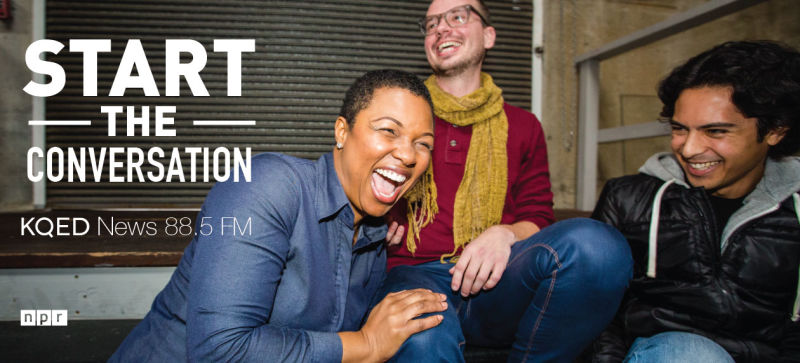I love public media’s power to connect us and spark conversations that matter.
Stories can take us places we otherwise might not

go: a homeless camp, a veteran’s hospital, an after-school program. We meet people through stories that we otherwise might never come across, so we know more about the man reading the news in Chinese on BART and the kid with the soccer ball heading to school. And when a story is extraordinary, when we are moved to laughter, tears or action, we feel compelled to reach out and tell someone about it.
One of the best parts of my job is hearing from you. I hear wonderful testimonials all the time: people who were inspired to volunteer because of a KQED program they heard or saw; others who ended up calling a member of Congress because of a documentary on the lack of clean drinking water in the Central Valley. Last year, I spoke with a woman in East Oakland who works with low-income job seekers. She was contacted by a tech executive in Silicon Valley asking how he could help after hearing her on the radio. Recently I met a young immigrant cab driver from Sudan who told me he learned English from listening to KQED 88.5 FM all day long and talking about the news with his riders.
The goal of KQED’s rigorous, independent reporting isn’t simply to put stories on air or online, it’s to start conversations among our audience. When you talk to each other, you inevitably feel more closely connected to your community and your world. When we are at our best, we engage people in better understanding themselves and their neighbors, transcending differences, and finding empathy.
